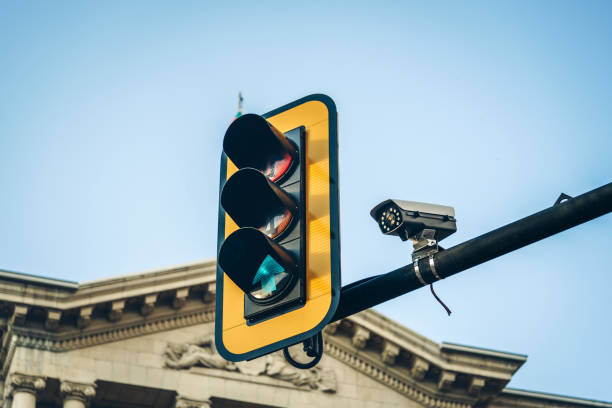In 2019, the first batch of security cameras was on a mock trial in some parts of Lagos and was being used by some officials of the transport regulatory agencies in the state.
In the same year, Frederic Oladehinde, Lagos State Commissioner for Transportation, reportedly stated that in order to alleviate traffic congestion, the state government will spend 40% of its capital expenditure on infrastructure in 2021, as well as embark on some reformative steps in transportation-related activities, such as the deployment of advanced technology to ensure strict compliance with traffic laws.
In keeping with such remarks, the Lagos state government has begun a technology-based project to identify, monitor, and fine traffic violators using traffic cameras from 2019 to 2022 in an effort to reduce violations of traffic regulations and curb traffic menace.
The introduction of the new Automatic Number Plate Recognition (ANPR) camera, a 24-hour camera across the state, helped road safety officials to detect vehicles with expired particulars, or those who violate traffic laws. These ones would be sent an sms with the fine per offense and will be asked to visit the Vehicle Inspection Service headquarters within seven days to make restitution and avoid a series of extreme penalties which includes vehicle confiscation.
The traffic cameras which can record both still pictures and videos in real-time are being used by the Lagos State Transport Management Authority to capture details of and track traffic violators.
This initiative is in connection with the administration’s goal to make Lagos state a smart city with its adoption of digital technology.
The launch of the initiative has been crucial in managing traffic regulations and improving Lagos traffic control, and has improved the productivity of LASTMA operations in the city that is densely populated by vehicles.
Over the years, traffic impasse has continued to obstruct all-round growth and development in the state with data from Danne Institute for Research showing that about eight million people commute in five million cars daily on a 9,204 roads network between the mainland and island, despite the state having the smallest landmass in Nigeria.
DriveMe will have completed over 10,000 driver training hours by 2022. Our training decreases the likelihood of our drivers receiving traffic violations. We collaborate with Lagos State traffic authority to make the roads safer for drivers.
